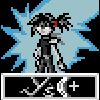A problem I've had in the past was explaining my concepts to other programmer to help them grasp my idea. I have this collision detection algorithm I recently made that works in a strange way. I want to at least be able to explain how my code work in a way almost anyone can easily understand. I've tried several methods but I have not seen any sort of success with my poor explanation skills. Now my code actually work and I want to try one more time to explain how I created my concept but this time I want to have 100 perspectives on (hypothencally speaking) on what my points are.
🎉 Celebrating 25 Years of GameDev.net! 🎉
Not many can claim 25 years on the Internet! Join us in celebrating this milestone. Learn more about our history, and thank you for being a part of our community!
The basics of explaining concepts and ideas
I am sorta in the business of explaining hehe. I have actually started a tutorial on how to explain something.
First explain what/who the subject is.
Next, explain what the subject does (it's purpose).
Then explain how the subject does what it does.
To make it even clearer, you can use analogies to explain how it works.
I made a tutorial on how to understand computer programming, using the analogy of cooking.
Variables are ingredients, and functions are instructions.
The functions outline the main actions of your code (what it does) and your variables denote what objects are being acted upon.
Explaining what each variable does/represents will help clarify also.
Something I was taught during University which I still hold dear:
Find something the listener knows and understand.
Determine how exactly this is similar/different to what you are trying to explain to him.
Start by saying it IS the same thing, and outline the differences.
The human brain understands better when it starts from a mental construct it knows and understand and evaluates what something "isn't".
This is, in part, due to the fact that the "same concept" is stored differently in everyone's brain.
Keep It Simple and Stupid. Always go to the point and try to keep your explanation as short and simple as possible.
Use schematics, drawing and bullet point if you can. "One drawing is better than a thousand words" as they say.
Have you read this recently published article? "Communication is a game development skill".
It contains some useful information, especially if you're planning to discuss your concepts after explaining it.
In addition to the above:
- Use standardised/common terminology rather than making up your own terms when possible. Try to avoid using a commonly understood term in a way that is different than normal, as this will confuse people.
- Take the time to explain any unusual terminology.
- If you're having a forum discussion and need to add additional information or correct something after others have responded it's often better to add your corrections or new information in a new post rather than editing an older post, as editing the older post can sometimes make the conversation difficult to follow.
Hope that helps! :)









